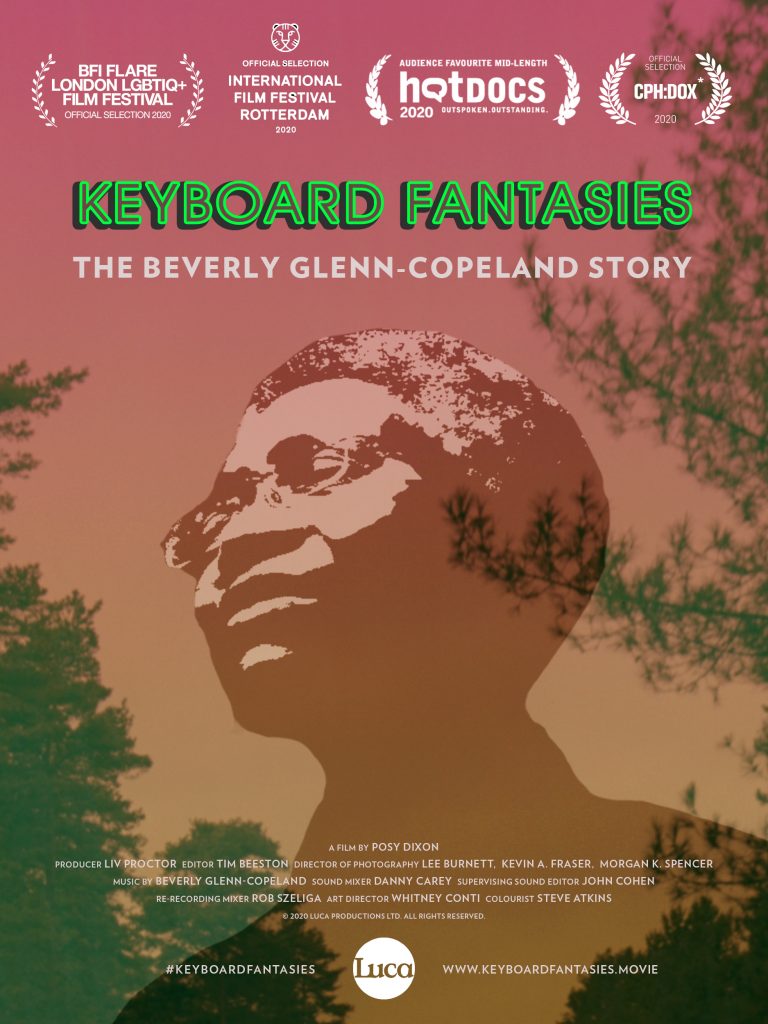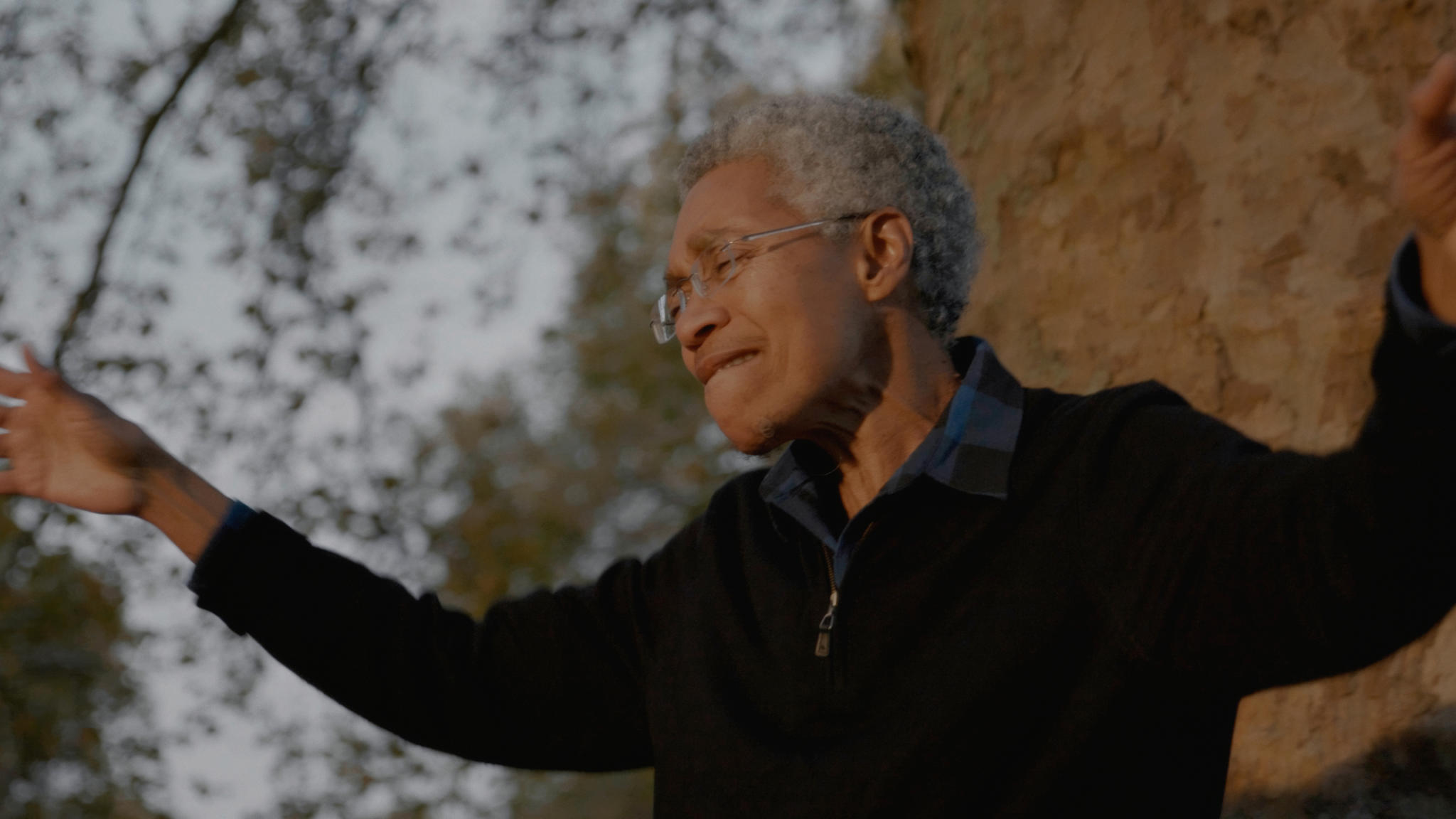The lyrics to Beverly Glenn-Copeland’s magnificent song, Ever New, are few, but no less important:
Welcome the spring
The summer rain
Softly turned to sing again
Welcome the bud
The summer blooming flowerWelcome the child whose hand I hold
https://www.youtube.com/watch?v=n1FCJr1HOio
Welcome to you both young and old
We are ever new
We are ever new
It is the opening track of the powerful, electronic new age album, Keyboard Fantasies, Glenn Copeland’s third studio album. With Glenn’s soothing, calming vocals, and a musical backing that is not-quite-violin not-quite-piano, but just enough that it feels comfortable and familiar, Ever New, is a seven minute and six second song of encouraged mindfulness. It lulls your mind into peace, easing your worries and your aches, and requesting you recognise the youth within you, no matter the year on your birth certificate. The rest of the album is equally easing, with six songs that feel powerfully unique in their peacefulness.
I was unaware of Glenn’s story prior to watching the documentary Keyboard Fantasies: The Beverly Glenn-Copeland story, but now, after my fourth viewing, and having spent hours absorbing myself in Glenn Copeland’s music, I can’t help but wish more people knew of his life and his life’s work. Directed by Posy Dixon, this reflectively gentle film is not an exhaustive portrayal of Glenn’s life (the work Glenn did on various children’s shows in the seventies and eighties is not touched upon), but rather a tender look at how Glenn made Keyboard Fantasies, and the impact the album has had on subsequent generations.
As Glenn’s mother was a Quaker, he found himself living life secluded from the protest movements that were helping transform America and Canada as a whole, with racial divides being addressed on the streets of college campuses and cities. Within Keyboard Fantasies, Glenn quietly, but passionately, talks to the camera about his life, and with reverence and gratitude, he talks about the generations that came before him, the African men and women brought to America on slave trade ships, and how without their pain, suffering, and sacrifice, he would not have been around to live the life he leads.
He recognises that their journey has put him on a path of his own kind of suffering, as Glenn talks about being a Black trans man growing up in sixties Canada, and all the injustices that came with living a life embracing open sexuality. Glenn saw his fellow LGBTIQA+ members being taken away to mental institutions and subjected to electro-shock therapy. As he lived his life openly at that stage, Glenn’s parents tried to take him to an institution to receive ‘treatment’. Thankfully, Glenn escaped, and managed to make a life for himself as a musician.
Both of his parents were musically gifted, with keen talents in various instruments that were played throughout his childhood, lifting their home up with the sound of echoing music. The impact of that music and the power of its pull was enough to lead Glenn into a life of music. With the arrival of home computers in the eighties, a new kind of creativity flourished into Glenn’s life. He couldn’t program, but he certainly was entranced by the existence of computers and the myriad of possibilities that came with them.
Soon enough, they evolved to the point where he could create music, and using a drum machine and a Yamaha keyboard, and inspired by nature and the world at large, Glenn created Keyboard Fantasies. As a small, home created album, it only sold a handful of copies. It wasn’t until 2015, when a Japanese collector contacted Glenn looking to acquire copies of the album on tape. Glenn eagerly sent of a bunch of cassette tapes to Japan, and a week later, the collector emailed again to get more tapes. The first batch had already sold, and people were eager to get more Glenn Copeland in their life. From there, an audience of Glenn-faithfuls grew, with Posy Dixon capturing some of the live concerts that Glenn took part in around the UK with band Indigo Rising.
The cover art is of a stained glass window, and Dixon’s direction carries the weight and mood of looking at afternoon sunlight glinting through the glass, the varied colours capturing floating dust, slowed down and captured in time. With pastel-draped imagery of sky and trees being placed as interstitial moments in between interview shots, Dixon manages to embody the strength and importance of Keyboard Fantasies perfectly. While Keyboard Fantasies runs for just over sixty-minutes long, it never feels slight or incomprehensive, with Tim Beeston’s editing splicing in archival footage and stock footage to help reflect the history that Glenn lived, as well as the present that he exists within now.
All of this works to create one of the kindest films I’ve seen in recent memory. There’s a reason that I find great comfort in returning to this film, over and over, and it’s the kind and considerate nature of Glenn Copeland and his music. His eagerness to talk about his life, talking about the path that has lead him to a new-found success with awe and luck, while never taking his fortunes for granted. Listening to Glenn talk is as soothing as listening to his music.
Midway through the film, Glenn talks to a radio host about his work, with the host thanking Glenn for Keyboard Fantasies, telling him that the album got him through a very difficult point in his life. Memories of that time are clearly fresh in his mind when he listens to the album, with pure emotions sitting in the hosts eyes as he tells Glenn of this.
Later, Glenn visits an LGBTIQA+ group, where someone mentions to Glenn the importance of his path as a queer-elder, and how valuable and respected the tribulations that Glenn and his fellow queer folk went through is for the younger generations. In quite possibly the most emotional and heartwarming moment of the film, Glenn finally recognises his place in the world. For so long, he had wondered why he was where he was, and doing what he was doing, and it was only when he reached his seventies that he was able to see his role in life: to be a guide and leader for other queer folks to look up to.
For Glenn, the younger queer folk are as much equal leaders as he is to them. Without them, he would not have recognised the importance he has in the lives of those around him. Glenn’s own recognition of the breadth of tragedy and the immense weight that that carries across generations comes full circle here. He lives as an artist now, because of what happened in the past, and the generations that are to come stand tall because of people like Glenn, like Marsha P. Johnson, like Laverne Cox, and so many other Black trans people around the world.
At this moment in time, it seems that each generation is at war against each other. Millennials attack boomers, Gen Z criticises millennials, and subsequent generations will be pushed to attack the past for not thinking about the future. Countless articles talk about what each generation is failing to do, focusing on what they aren’t doing rather than what they have done. Within Keyboard Fantasies, the intergenerational divide feels non-existent, with each working together to ensure that future generations are nurtured and nourished, and given the time and ability to grow. Glenn’s understanding that his role as an elder is to help pass the baton, to ensure that future generations don’t have to go through the same anguish and pain that generations of the past did, further reinforces the kind and pure soul that is within Glenn Copeland.
If you can imagine that kind of spirit creating music, then you have are on the path to understanding what kind of musician Glenn Copeland is. The reflective nature of Glenn, and his realisation that we are always growing, and always changing, and that that is not something to be feared, but something to be embraced within our relative communities, reminds us all that:
We are ever new
Director: Posy Dixon
Visit Glenn Copeland’s website here
Find out about Keyboard Fantasies: The Beverly Glenn-Copeland Story here






